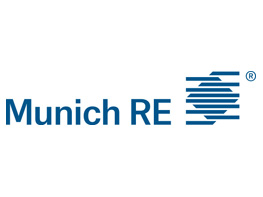Legal Roundup: Tupac’s Records Scorched, Walmart Faces Trademark Infringement and More

Wisconsin County Can’t Require Oil Pipeline Owner to Carry Additional Insurance
The Case: When an oil-pipeline owner requested a conditional-use permit to build a pumping station in Dane County, Wisconsin, the county required that the company carry extra spill insurance.
“But state lawmakers intervened on behalf of the company, passing a law that banned counties from requiring special insurance if an interstate pipeline operator carries comprehensive general liability insurance that includes coverage for ‘sudden and accidental pollution liability,’ ” according to the Wisconsin State Journal.
A legal battle ensued with the company, Enbridge Energy, “seeking to strike the insurance requirement, the county fighting for local powers and a group of pipeline neighbors seeking an injunction to enforce the permit conditions who assert the company has never provided proof it is insured for sudden and accidental pollution liability,” the State Journal reported.
Scorecard: The Wisconsin Supreme Court sided with Enbridge, ruling that Dane County cannot require the company to carry extra insurance.
Takeaway: Businesses advocates agree with the decision and say the county overreached.
Scott Manley of Wisconsin Manufacturers & Commerce told the State Journal: “Businesses need to be able to operate in Wisconsin with the understanding that local governments will follow the law and operate within their authority.”
Meanwhile, David Gault, assistant corporation counsel for Dane County says the ruling has “effectively given pipeline operators permission to operate in Wisconsin with no insurance.”
Kansas Supreme Court Strikes Down Damages Cap
The Case: In 2010, Diana K. Hilburn was hurt in a car accident and subsequently received $335,000 in damages.
“But a district court judge reduced the award by more than $51,000 to bring it in line with the state’s then-$250,000 award cap, which legislators passed in 1988 to cut the cost of malpractice insurance for physicians and rein in large jury awards,” according to the Wichita Eagle.
Hillburn appealed, claiming the ruling wasn’t reasonable and took away her constitutional right to have a jury decide her award.
Scorecard: In June, the Kansas Supreme Court reversed the previous decision, “ruling 4-2 that the cap did in fact intrude on the jury’s ability to award to a plaintiff whatever damages they saw fit to compensate them for their injuries,” the Wichita Eagle reported.
Takeaway: The case “figures to change the landscape of personal injury litigation in Kansas,” as it could be used as precedent to “challenge similar caps in medical malpractice cases,” says the Eagle.
Tupac Estate, Soundgarden Sue Universal Music Group Over Vault Fire
The case: A who’s who of musicians and their heirs have sued Universal Music Group over a 2008 fire that destroyed 500,000 master recordings.
Among the plaintiffs are Tupac Shakur’s estate, Hole, Soundgarden, and Tom Petty’s ex-wife Jane Petty.
Billboard explains: “They are seeking to recover half of any settlement proceeds and insurance payments received by UMG and half of any remaining loss of value not compensated by such settlement proceeds and insurance payments.
“According to the lawsuit, UMG’s litigation and insurance claims following the fire were reportedly valued at $150 million to recoup the value of the master recordings — none of which was directly shared with artists.”
Scorecard: The case is still ongoing.
Takeaway: Who is entitled to insurance claims? Was UMG deceptive in disclosing losses to the artists and the press? Those questions should soon be answered.
JetBlue Sues Walmart Over “JetBlack” Service
The Case: Airline JetBlue has sued Walmart in Manhattan federal court for alleged trademark infringement over Walmart’s personal shopping service JetBlack.
The airline argues that the trademark “will likely cause significant consumer confusion and the dilution of the JetBlue brand,” according to Crain’s New York.
The article goes on to say: “The personal shopping service which is text-based, and affiliated with Jet.com, whose parent company is Walmart, offers concierge services recommendations for experiences and destinations, and also has physical retail and pop-up retail experiences. In the 53-page complaint, JetBlue alleges that Walmart is also intending to further infringe on its trademark by adopting additional Jet+color names including JetGold and JetSilver, to move closer to JetBlue’s core services by offering travel and transportation services.”
Scorecard: The suit has just been filed so a resolution is not on the immediate horizon.
News reports of the case could have publicity benefits for both brands. JetBlue could gain favor by taking on a corporate titan that some say exploits workers and hurts small businesses. Meanwhile, Walmart gets extra publicity for its new personal shopping tool.
Takeaway: Naming, trademarking and intellectual property are incredibly valuable assets. &










